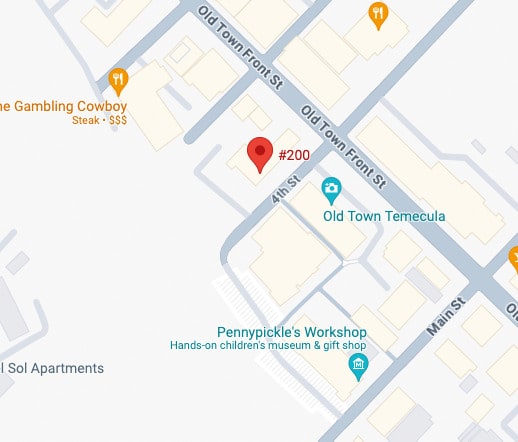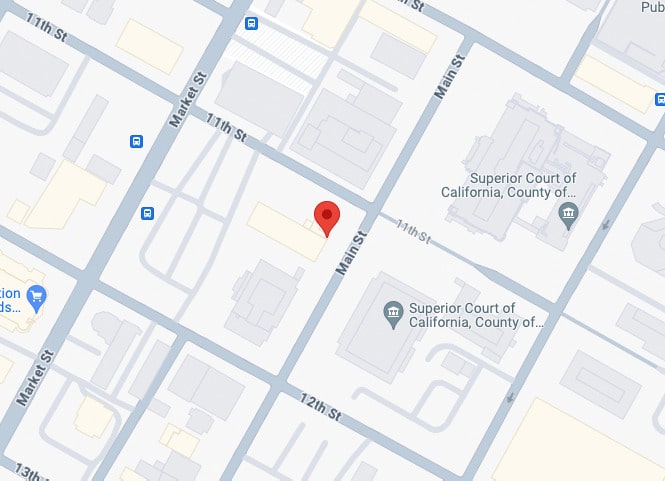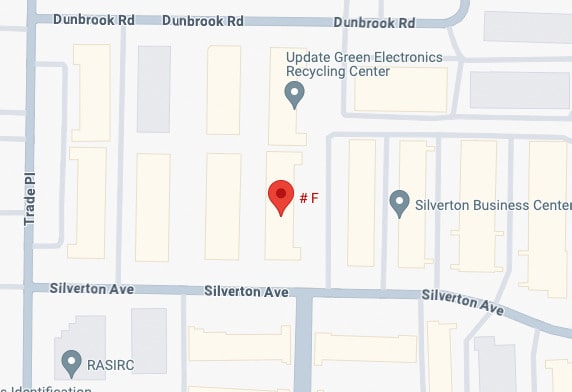Violent crimes are felony offenses punished severely under California law. They attract hefty penalties, including the possibility of the death penalty or even life in prison. Typical violent crimes include assault with a deadly weapon, criminal threats, robbery, rape, attempted murder, and murder. If you are accused of a violent crime, consult a skilled and aggressive criminal defense attorney as soon as possible. An attorney will help you navigate the justice system to receive a fair judgment.
Violent Crimes Under California Law
Below are the main violent crimes under California law:
Murder - Penal Code 187 PC
Penal Code 187 PC defines murder as the unlawful killing of a fetus or a human being with malice aforethought. Under California law, homicide is killing someone else, whether illegal or lawful. Therefore, homicide includes murder, justifiable killings, and manslaughter. Murder is the most aggravated offense and attracts the most severe penalties.
Malice aforethought is of importance in a murder case. It refers to a person’s state of mind when committing the crime. For example, you could have acted with malice aforethought if your action can likely result in someone else's death or if you act with wanton disregard for human life. Therefore, if the prosecutor accuses you of murder, Penal Code 187 requires that he/she prove the following elements:
- Your actions led to the death of a fetus or someone else.
- You acted with malice aforethought.
- You killed without lawful justification or excuse.
The crime of murder has several forms, including:
- First-degree murder.
- Second-degree murder.
- Capital murder.
- Felony murder.
You could be convicted of first-degree murder if you do the following:
- Directly kill someone else when committing a felony.
- Lie in wait.
- Deliberately and willfully commit a premeditated killing.
- Torture someone else before he/she passes away according to Penal Code 206.
- Use ammunition, destructive devices, explosives, or a poison.
Usually, second-degree murderers are willful but do not have premeditation. If the prosecutor accuses you of second-degree murder, he/she does not need to prove that you planned the murder. The prosecutor must only show that you intended to murder someone when the offense happened. Examples of second-degree murders include:
- Engaging in a fight while inebriated and sucker punching someone else. The person falls on a rock, suffers a severe head injury, and dies.
- Shooting in a crowd without the intention to kill, you kill another person.
Capital murder falls under first-degree murder with exceptional factors. Under Penal Code 190.2, a few special situations could make you face capital murder charges, including:
- Drive-by shooting.
- Killing a prosecutor, juror, elected official, or a police officer.
- Killing for financial gain.
- Killing several people.
Penalties For violating Penal Code 187 PC
You will face penalties under PC 187 depending on the degree of murder you are convicted of. For example, you could face a jail term that does not exceed 25 years to life in prison if the prosecutor convicts you of first-degree murder.
You could face life imprisonment without the possibility of parole if your murder charge is deemed a hate offense. Usually, murder motivated by hate targets people based on their sexual orientation, disability, nationality, religion, gender, or race.
If the prosecutor charges you second-degree murder, you could face a jail term that does not exceed 15 years to life imprisonment. Some circumstances could enhance your jail term, including:
- If you served a previous murder sentence, you could face life imprisonment without the possibility of parole
- If you fired a gun from a vehicle and intended to inflict serious bodily injury, you could face 20 years jail term to life imprisonment.
- If you killed a peace officer, you could face 25 years jail term to life imprisonment.
- You could face life imprisonment without the possibility of parole if the victim was a peace officer and you intended to kill, or you killed him/her using a gun.
Defenses to Murder
Some of the defenses you could present to contest your murder charges include:
- Insanity defense.
- Killing in the heat of the moment.
- Factual impossibility.
Capital murder is generally a grave crime, and a conviction could lead to the following penalties:
- Life imprisonment without the possibility of parole.
- A death penalty.
Rape - Penal Code 261
The crime of rape is defined under PC 261 as the use of fraud, threats, or force to have non-consensual sex with someone else. If the prosecutor accuses you of violating PC 261, this statute requires that he/she prove the following elements:
- You engaged in sexual intercourse with someone else.
- The victim did not consent.
- The victim was not your wife or husband at the time of the act.
- You used violence, force, menace, duress, fraud, fear of bodily injury, or retribution to accomplish the rape.
The person you raped must be alive at the time of the crime for you to face charges under PC 261. The meaning of violence or force under rape laws is as follows:
- Using fear to coerce another person to have sex with you.
- Using strength to subdue another person’s willpower.
- Menace, which involves actions that indicate intent to inflict injury on another person.
- Duress involves threats, which can cause another person to accept having sex with you.
- Fraud involves lying or tricking another person to compel them to have sex with you.
A sexual act under California law is any penetration of the genitalia or vagina by the penis. Additionally, the law does not consider ejaculation a requirement in rape lawsuits.
According to PC 261.6, consent is when an individual understands the nature of the action inflicted on them. A person acts voluntarily and freely to show their approval. However, in the initial stages, a person could consent to have sex but change their mind while in the process. In this case, if you continue with the act, the sex could be deemed non-consensual. Sex could be non-consensual if the victim conveys words or actions of non-consent to you.
Penalties for Violating Penal Code 261
Prosecutors often charge the violation of PC 261 as a felony. If you are found guilty of this crime, you could face a jail term that does not exceed eight years. The court could also increase your jail term based on the degree of injuries the victim suffers. You could also face different felony penalties based on the age of the victim, as follows:
- You could face a jail term of seven, nine, or eleven years in prison and a lifetime sex offender registration if the victim was under 14 years.
- You could face a jail term of nine, eleven, or thirteen years if the victim was between 14 and 17 years old. You could also be ordered to register as a sex offender for life.
- You could face a jail term of three, six, or eight years in state prison if the victim was 18. You could also be ordered to register as a sex offender for a period that does not exceed 20 years.
Additionally, if you are charged with rape, you could receive a strike on your criminal record under the Three Strikes Law. If the court discovers you had previously committed a strike offense, you could face more severe penalties. You could serve double the prison term under the Three Strikes Law as follows:
- You could face a jail term that does not exceed 16 years for a first strike.
- Your jail term could increase from a period that does not exceed 25 years to life imprisonment if you have previously committed two strike offenses.
Rape is also an offense of moral turpitude. You could therefore be deported if you are a U.S. non-citizen.
Defenses for Rape Charges
Several defenses are available that you could use to challenge your rape charges, including:
- You are a victim of mistaken identity.
- You were falsely accused.
- No sexual intercourse.
- The victim consented to sex.
Arson - Penal Code 451
It is an offense under PC 451 for any person to willfully and maliciously burn, set on fire, or aid in burning property, forestland, or any structure. If the prosecutor accuses you of violating PC 451, this statute requires that he/she prove the following elements:
- You set fire to, burned, or caused the burning of property, forestland, or a structure.
- You acted willfully and maliciously.
According to the law, you can commit an act willfully when you do it on purpose or intentionally. You could act maliciously if you consciously act with unlawful intent or do a wrong act to injure, annoy, or defraud another person.
You could face charges under PC 452, even if you do not act maliciously or willfully. PC 452 applies to ‘’reckless’’ burning. Under this statute, it is an offense for any person to recklessly burn or set on fire any property, forest land, or structure. You could act recklessly if:
- You know that your actions could present an unjustifiable and significant risk of causing a fire.
- You ignore that risk.
- You behave in a manner that depicts a gross deviation from how a reasonable person would behave under similar circumstances.
A structure under California law is any tunnel, commercial tent, bridge, or building. If the fixtures within the building form an integral part of the building and an arson fire damages them, they fall under the structure. Forestland under the Penal Code means woods, grasslands, forests, cut-over land, or brush-covered land.
According to arson laws, property means personal land or property other than forestland. Therefore, burning your personal property does not amount to arson.
Penalties for Penal Code 451 Charges
Prosecutors always charge a violation of PC 451 as a felony. The felony penalties you could face would depend on the following:
- The kind of property you burned.
- Whether another person sustained injuries.
The possible penalties you could face for willful or malicious arson include the following:
- A jail term of 16 months, two years, or three years for malicious arson of personal property.
- A jail term of two years, four years, or six years for malicious arson of a forestland or structure.
- A jail term of three years, five years, or eight years for malicious arson that causes an inhabited structure or inhabited property to burn.
- A jail term of five years, seven years, or nine years for arson that causes great bodily harm.
You could face negative immigration consequences if the prosecutor charges you with arson. According to U.S. immigration statutes, certain types of criminal charges can lead to:
- A non-citizen being marked inadmissible.
- A non-citizen being deported.
Defenses to Penal Code 451 Charges
Some of the defenses you could use to fight your PC 451 charges include:
- You had no intent to burn the property or structure.
- The fire was not started by arson but was accidental.
- No willful act.
Robbery - Penal Code 211
It is a crime under Penal Code 211 for any person to use force or threats to take someone else's property directly against that person's will. If the prosecutor accuses you of robbery, this statute requires them to prove the following elements:
- You took property that was not yours.
- Someone else possessed the property.
- You took property from someone else’s immediate presence.
- You took the property against the will of that person.
- You used fear or force to take the property or prevent the other person from resisting.
- Your primary intention in using fear or force was to deprive the owner permanently of a larger portion of the property's value.
Penalties for Violating PC 211
You will face penalties under PC 211 based on whether the robbery falls under first-degree or second-degree. Prosecutors often charge a robbery as first-degree where any of the following is true:
- You robbed a person immediately after he/she used an ATM.
- You robbed a person in a trailer, boat, or inhabited house.
- The victim is a passenger or a driver of a subway, trackless trolley, streetcar, cable car, taxi, or bus.
Prosecutors usually prosecute first-degree robbery as a felony. The penalties you could face include the following:
- A fine that does not exceed $10,000.
- A jail term of three, four, or six years in a state prison.
- Formal or felony probation.
You could face the following penalties if you commit first-degree robbery in an inhabited structure with two or more other people:
- A jail term of three years, six years, or nine years in a state prison.
You could face the following penalties if the prosecutor charges you with second-degree robbery:
- A fine that does not exceed $10,000.
- A jail term of two, three, or five years in a state prison.
- Felony probation.
The prosecutor could also prosecute the crime of robbery depending on the number of victims involved but not the number of items of property you took. For example, you could face two counts of robbery if you applied fear or forced two people to steal the wallet of one of them. However, you will only face one charge of robbery if you steal several items from one victim. For example, multiple items could be cell phones and jewelry.
Several sentence enhancements could add to the repercussions of PC 211. These include:
- If you cause great bodily injury to someone else, according to PC 12022.7. In this case, you could face an enhanced jail term of three years, six years to your robbery jail term.
- If you use a gun to commit robbery, you could serve a longer jail term under PC 12022.53 ’10-20-life use a gun and you’re done’. For example, you could face a ten-year jail term for personally using a gun in a robbery. You could also face a 20-year jail term for intentionally and personally firing a gun during the robbery. You could also face a 25-year jail term if you cause great bodily harm or death with a gun during a robbery.
Defenses for PC 211 Charges
The defenses you could use to fight PC 211 charges could include the following:
- False accusations.
- Mistaken identity.
Mayhem - Penal Code 203
It is a crime under PC 203 for any person to unlawfully or maliciously attack someone else in a manner that causes disability or disfigurement. Under the law, mayhem involves performing any of the following acts unlawfully or maliciously:
- Injuring or pulling out another person’s eye.
- Slitting another person’s lip, ear, or nose.
- Disabling or cutting another person’s tongue.
- Disfiguring another person permanently.
- Removing a part of another person’s body.
Penalties for PC 203 Charges
The penalties you could face under PC 203 include the following:
- A fine of $10,000.
- A jail term of two, four, or eight years in a state prison.
- Felony probation.
You could face an enhanced jail term if the victim is:
- A paraplegic or quadriplegic.
- Developmentally disabled.
- Deaf or blind.
- Under 14 years.
- 65 years or older.
You will face an enhanced jail term of one or two years for any of the above cases.
Defenses
You could contest PC 203 charges as follows:
- Self-defense.
- False accusations.
Other Violent Crimes
Other violent crimes charged in California include:
- Voluntary manslaughter - PC 192a.
- Sodomy - PC 286c.
- Lewd Acts with a child - PC 288a.
- Sexual penetration - PC 289a.
- Child pornography - PC 311a.
Find a Reliable Bail Bondsman Near Me
If you are arrested for a violent crime in California, you do not have to sit in jail awaiting the completion of a trial. Instead, you can have a bail bondsman bail you out of jail to give you ample time to prepare a defense. Justice Bail Bonds provides reliable 24/7 bail bond services at an affordable rate. We invite you to contact us today for reliable bail bond services in Temecula. Call us at 951-445-4155 to speak to one of our bondsmen.










